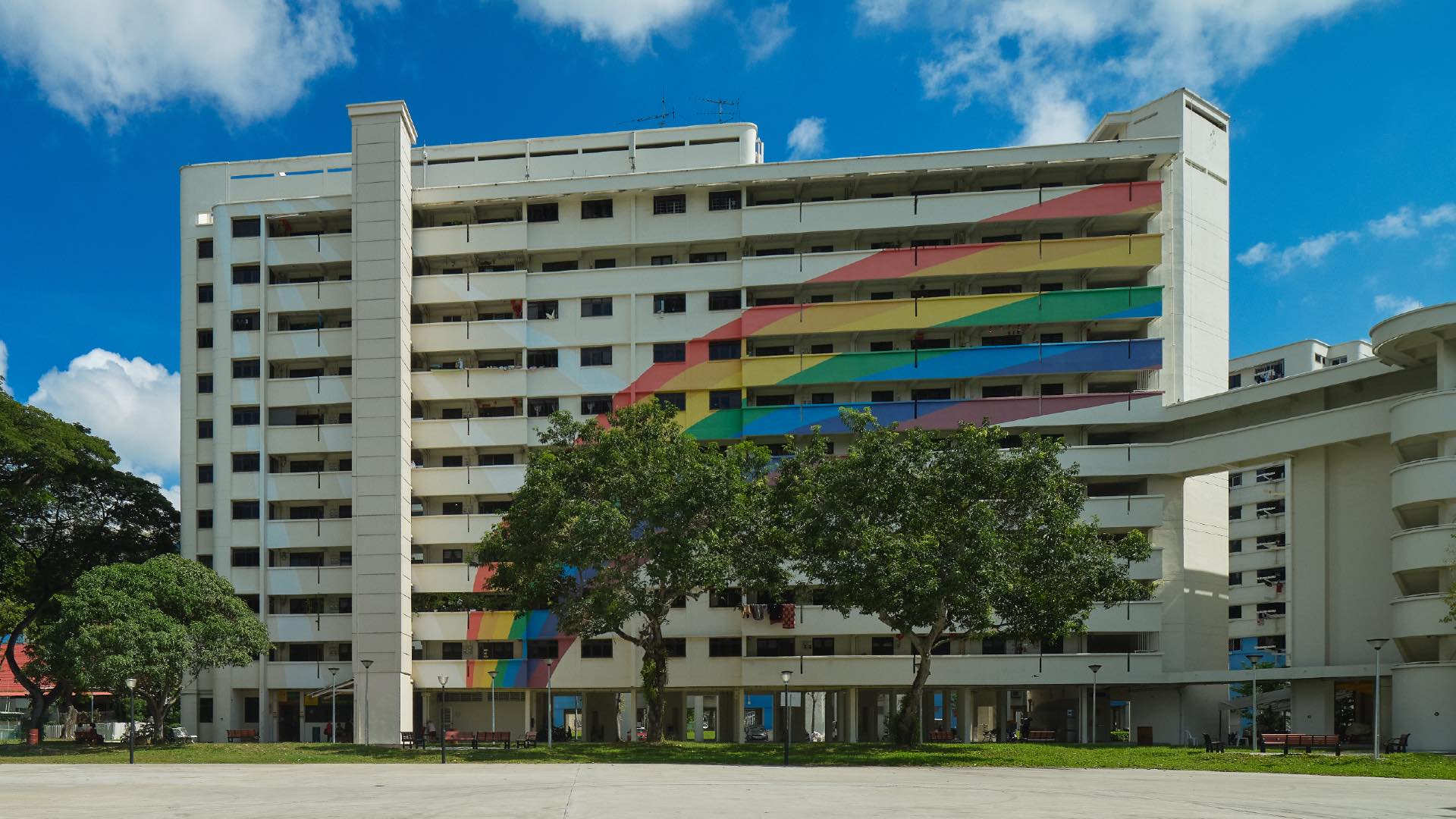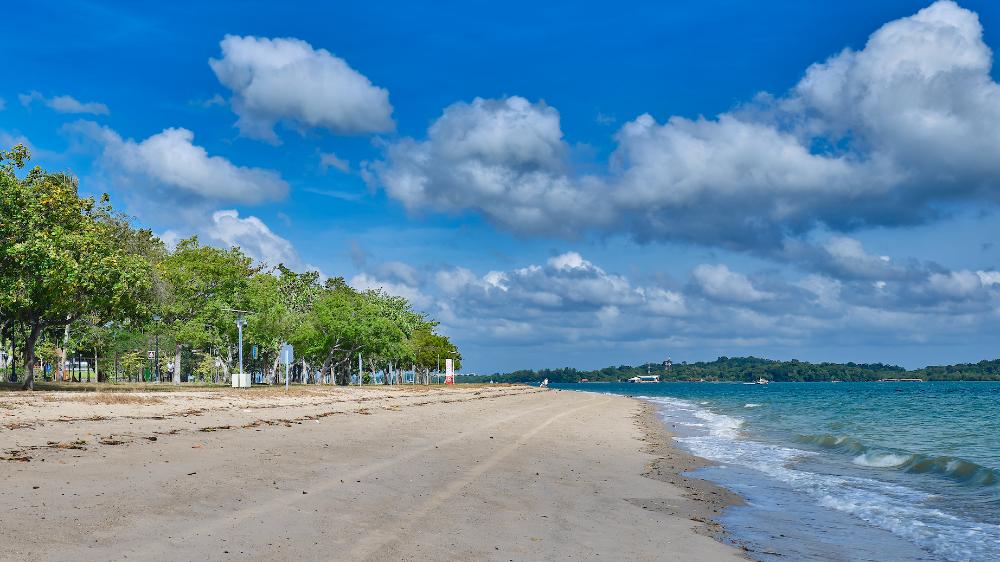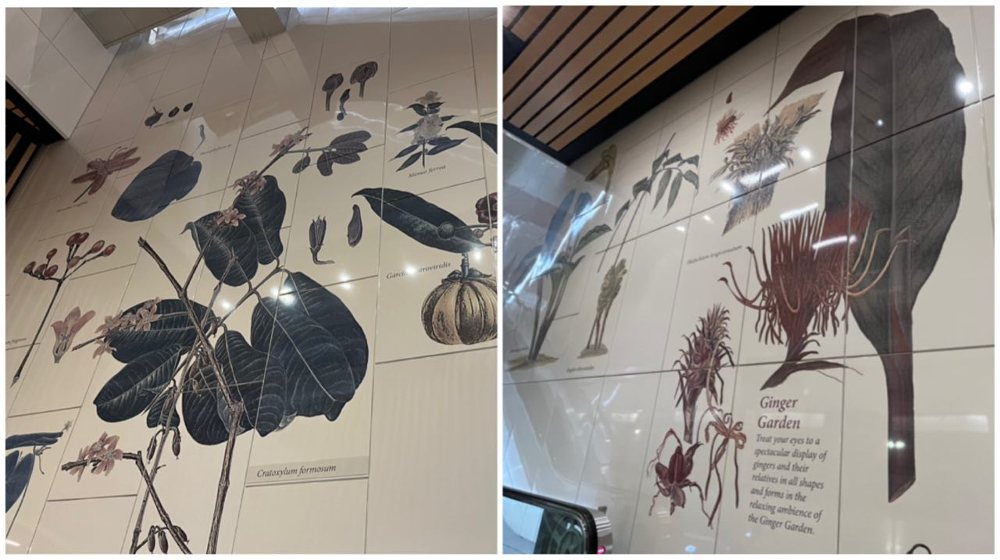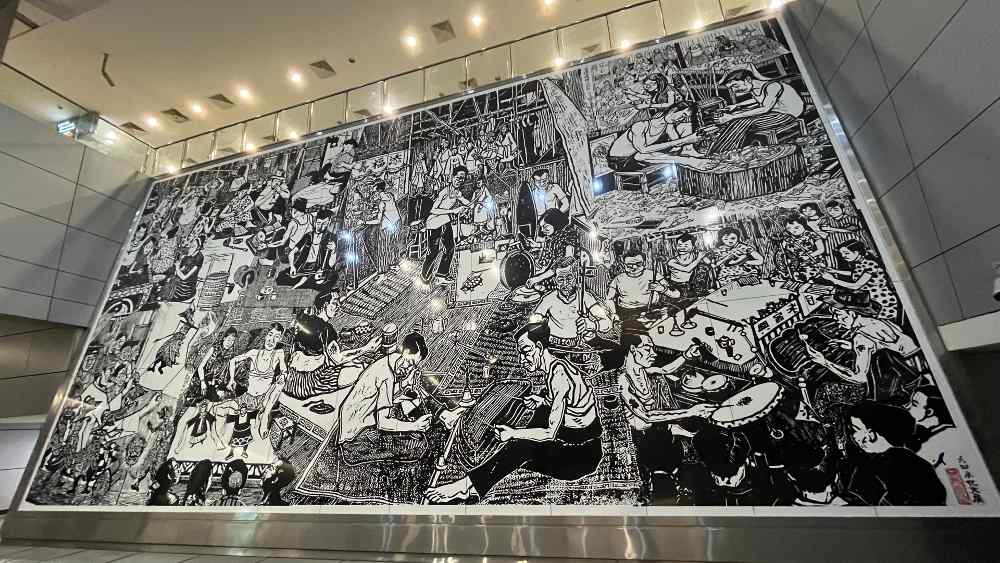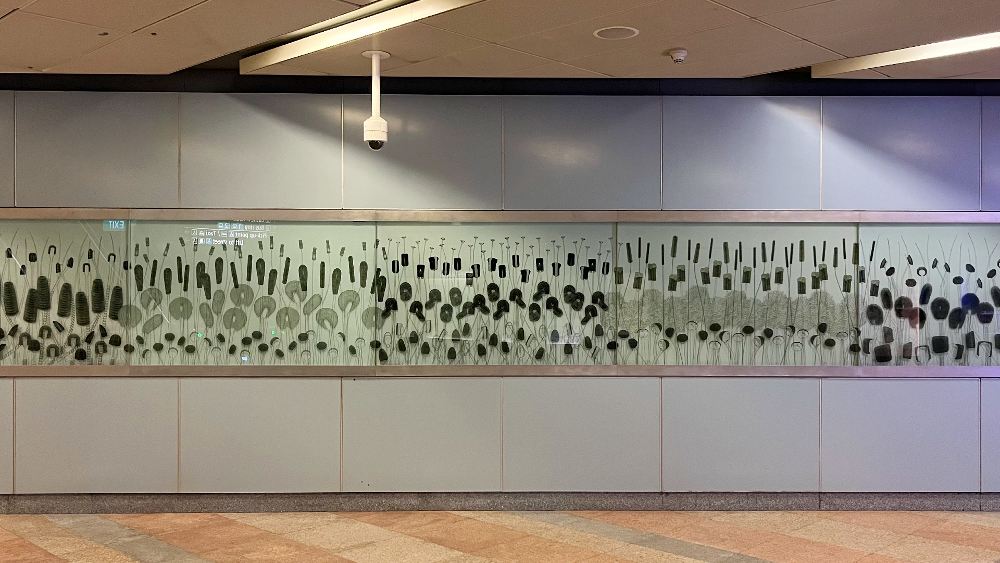Adventures At Home: Let's Rediscover Hougang
I was shocc to find out from a good friend and long-time Hougang resident that this place used to be a jungle with pig farms, kampungs, and crocodiles.
And do you wonder why Hougang is pronounced “ow kang”? That's because it's actually Teochew and Hokkien for “at the back of the river”, a phrase that references where this heartland town was first established at Sungei Serangoon - the very end of Upper Serangoon Road.
While much of Hougang has changed, a few things remain: the large Teochew community and the good eats, some say the best in the north east.
Following the National Heritage Board’s Hougang heritage walk, take a trip down memory lane, complete with Insta-photo tips and plenty of makan recommendations along the way. All you need: a spirit of adventure (and a hearty appetite)!
Sungei Serangoon Park Connector is a great place for an evening stroll or bicycle ride.
Posted by NParks on Friday, 23 October 2015
Break your BMT record at Sungei Serangoon
Hougang's roots have now become part of a long park connector stretching from Punggol Park all the way to Punggol itself. Plenty of space and exercise pits to stretch your legs or train up for that IPPT Gold, all while enjoying scenic views of the river. If you’re lucky, you might meet a family of otters too.
Watch out for vintage clocks at Cheong Ann Watch Maker
Although this shop looks retro AF, time definitely does not stand still here. This quaint museum-like store sells, repairs, and restores antique and collectible clocks, and is now run by the second and third generations of the Lim family. One of their most important commissions was to restore the grandfather clock at Raffles Singapore, the hotel’s oldest remaining furniture.
Follow the Hougang heritage makan trail
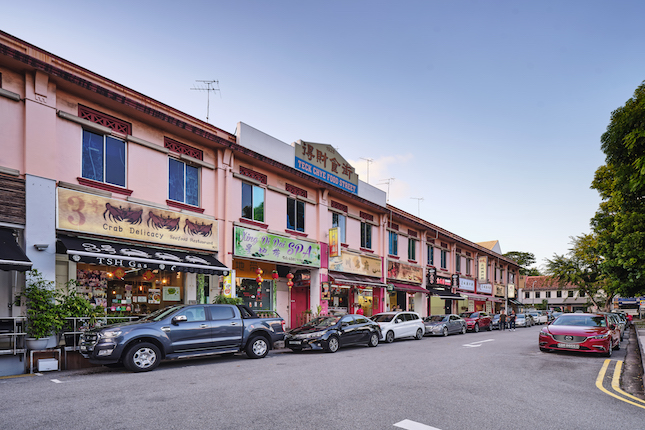
Teck Chye Terrace
This spot built in 1928 by Chinese businessman Lim Teck Chye has been a popular food haven for decades, and used to be a landmark of the former Lim Tua Tow market area. Hawkers used to sell fried carrot cake and beef noodles here until the 1990s.
Today you can find food from around the world here – we recommend the Thai cuisine at Yaowarat Seafood as well as fresh sashimi at Kaiyo Sushi & Grill.
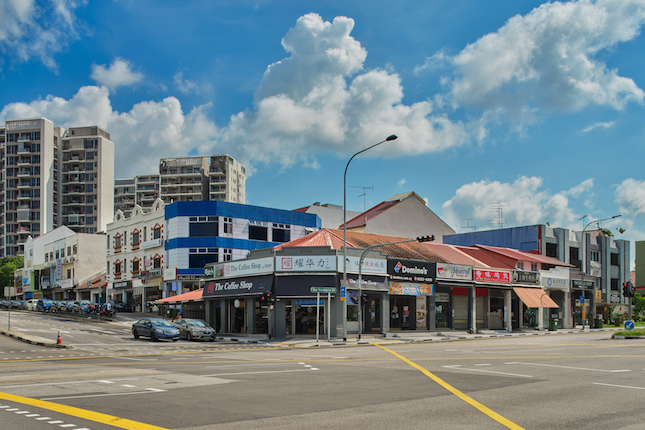
939 Upper Serangoon Road, the former Simon Road Market
The old Upper Serangoon Market - the place to buy poultry - was built in 1948 right here along Simon Road. It was closed in 1999, and what’s left of the market are the single-storey terraced units, now with food choices galore. The Yaowarat Thai Kway Chap is a must-try, and the spicy chicken hotpot at Qi Wei Ji Bao is a perfect dish to order on a rainy day. Down the road, you’ll see a long queue for Ponggol Nasi Lemak. Around the corner, Lola’s Café serves great eggs benedict, crab cake, and pulled pork.
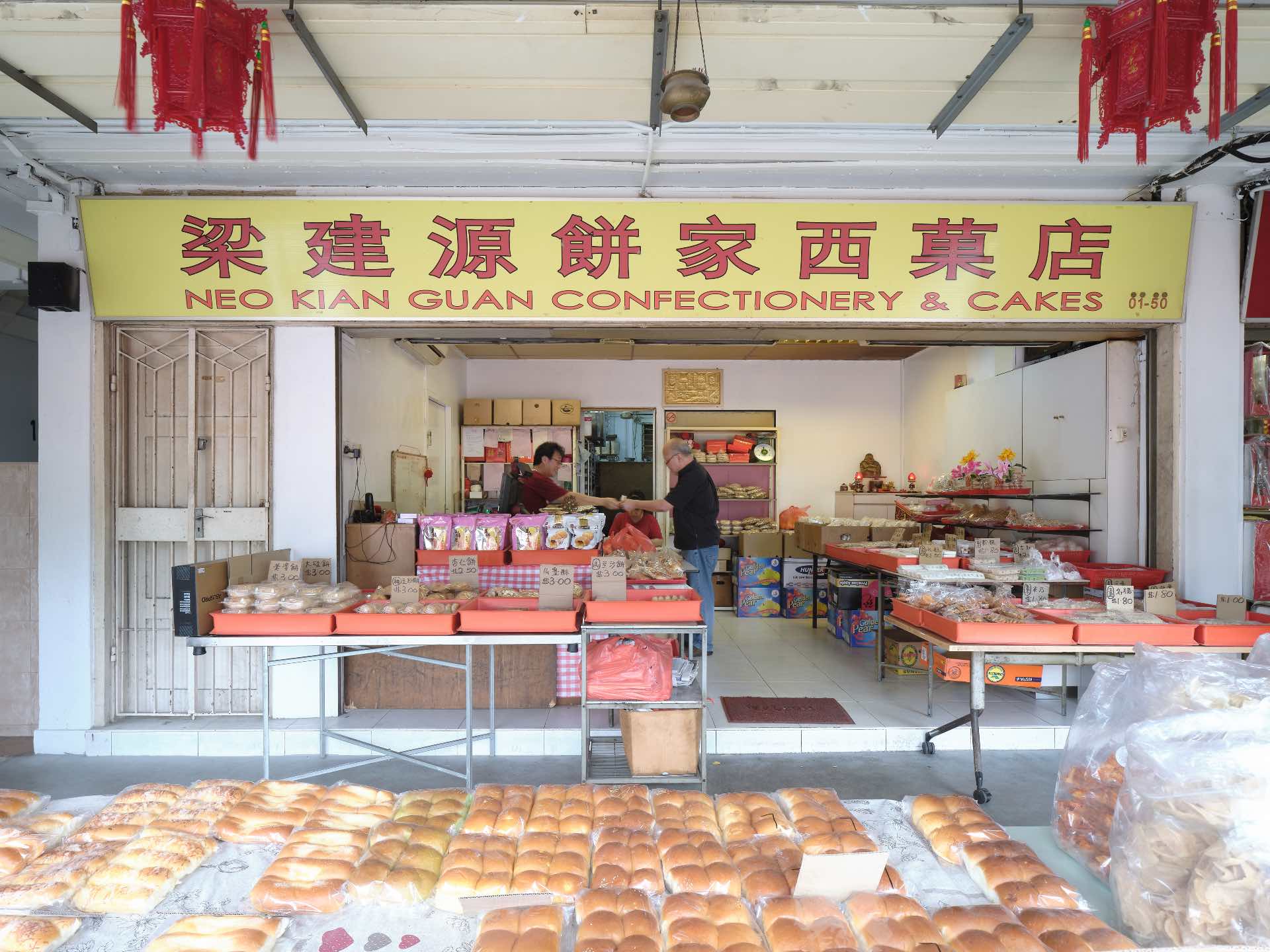
Neo Kian Guan Confectionery
Most “Hougangites” know (or know of) this old-school family-owned bakery that has been around for more than 70 years. They used to serve their traditional Hokkien and Teochew biscuits and cakes at Jalan Kayu in the 1930s, then moved to Lim Tua Tow Road in 1949, and finally found their current home at 7, Hougang Ave 3 in 2008. The family’s third generation now runs the place, still making delicious pastries by hand.
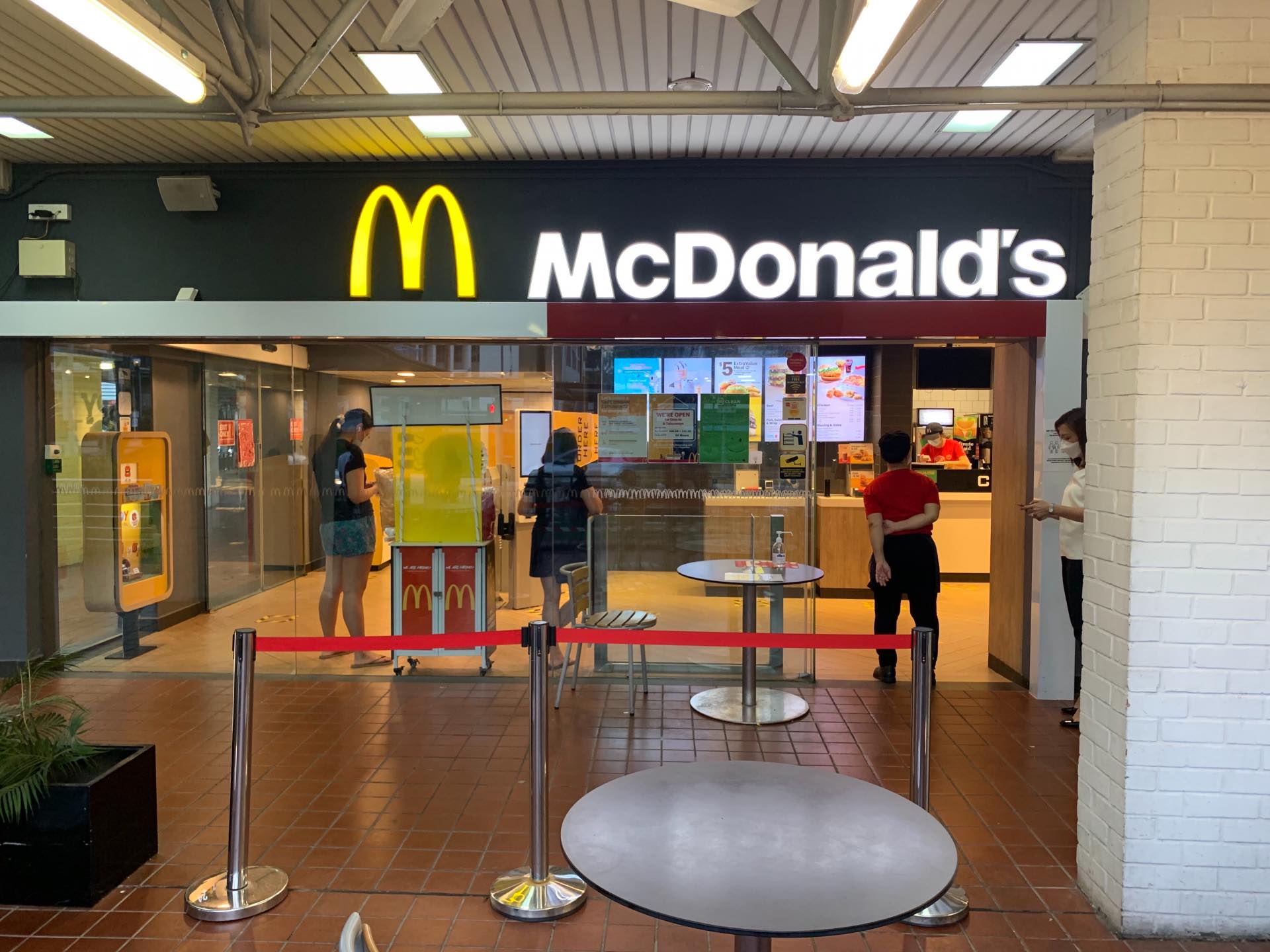
The first McDonald’s in a housing estate
Local food is good but to some (like me), McDonald’s is life – so I was happy to learn that the first pair of Golden Arches that opened its doors in a public housing estate was in Hougang in May 1984. Since then, the outlet at Hougang Street 21 has continued to serve delicious Big Macs.
Your Insta-walk checklist here:
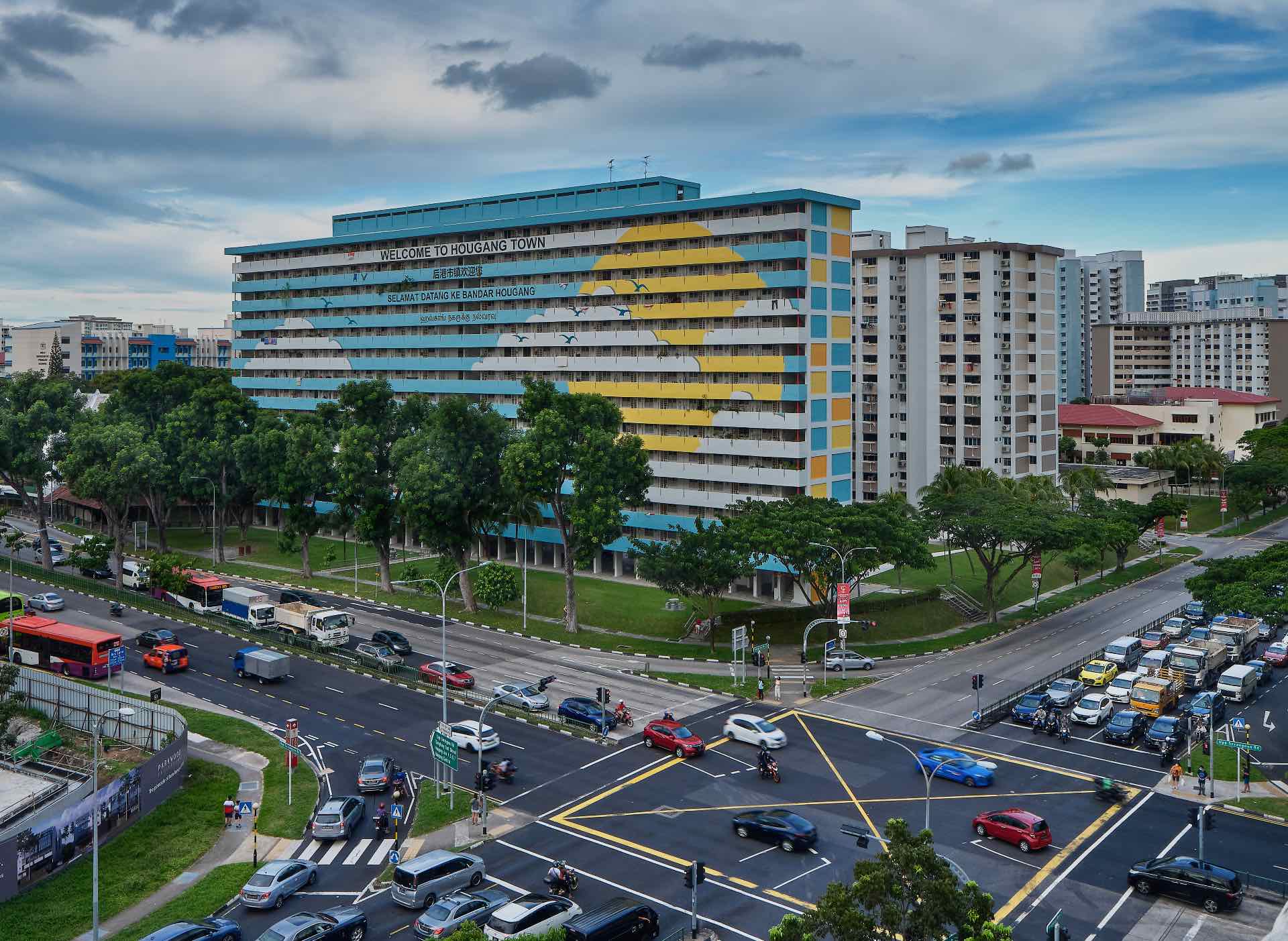
“Welcome Block” Block 25
If there's one landmark that tells you explicitly that you're in Hougang, it's this one - after all, it has “Welcome to Hougang Town” (in four languages) plastered all over its façade. Located at the busy junction of Hougang Ave 2 and Upper Serangoon Road, the block features a mural of a bright and sunny sky that was commissioned in the 1980s, when HDB wanted to create a greater sense of identity for housing estates.
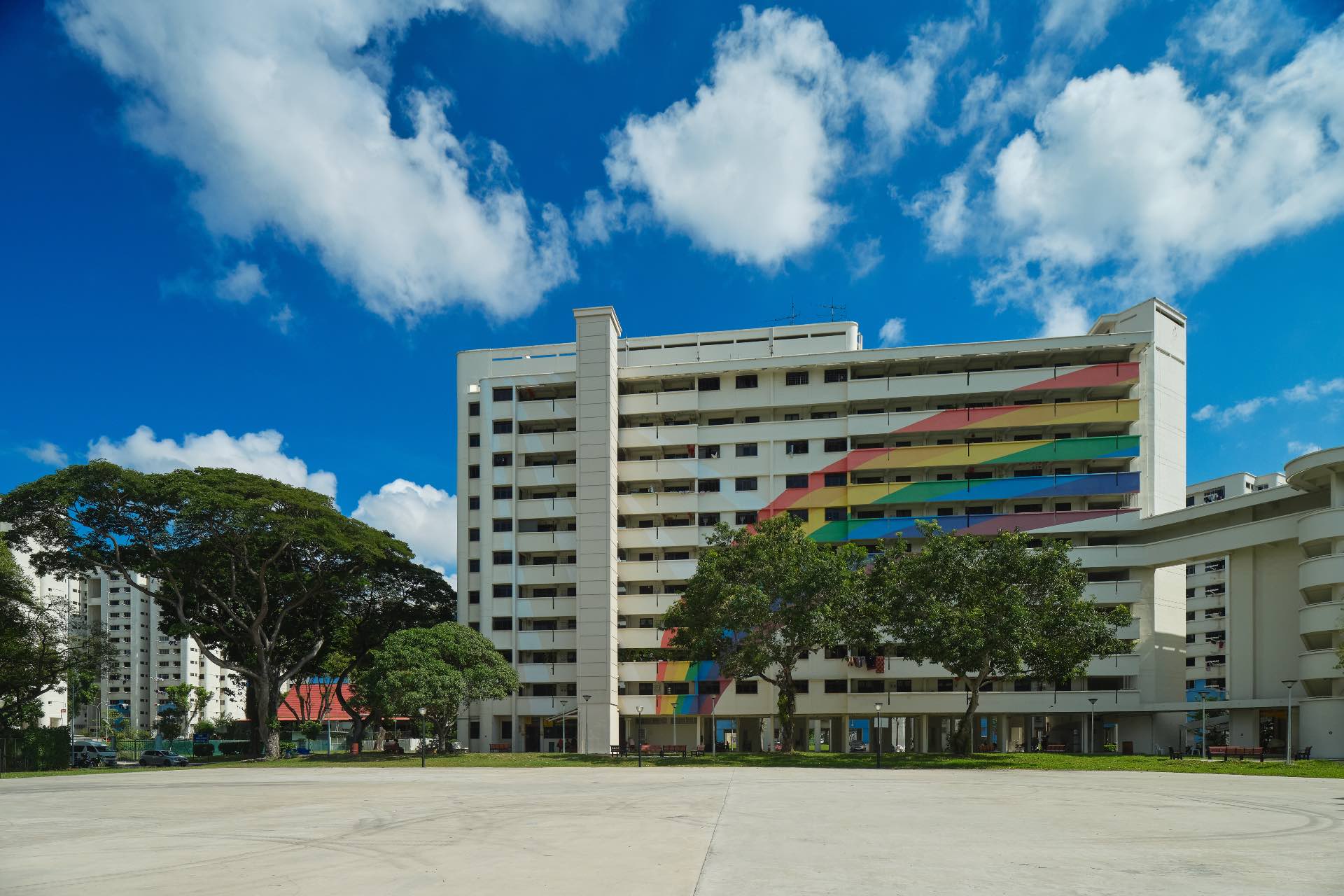
“Rainbow Block” Block 316
This rainbow block is a popular backdrop for Instagram stories and wedding photos. What you might not know is that the rainbow design has been repainted differently a number of times through the years.
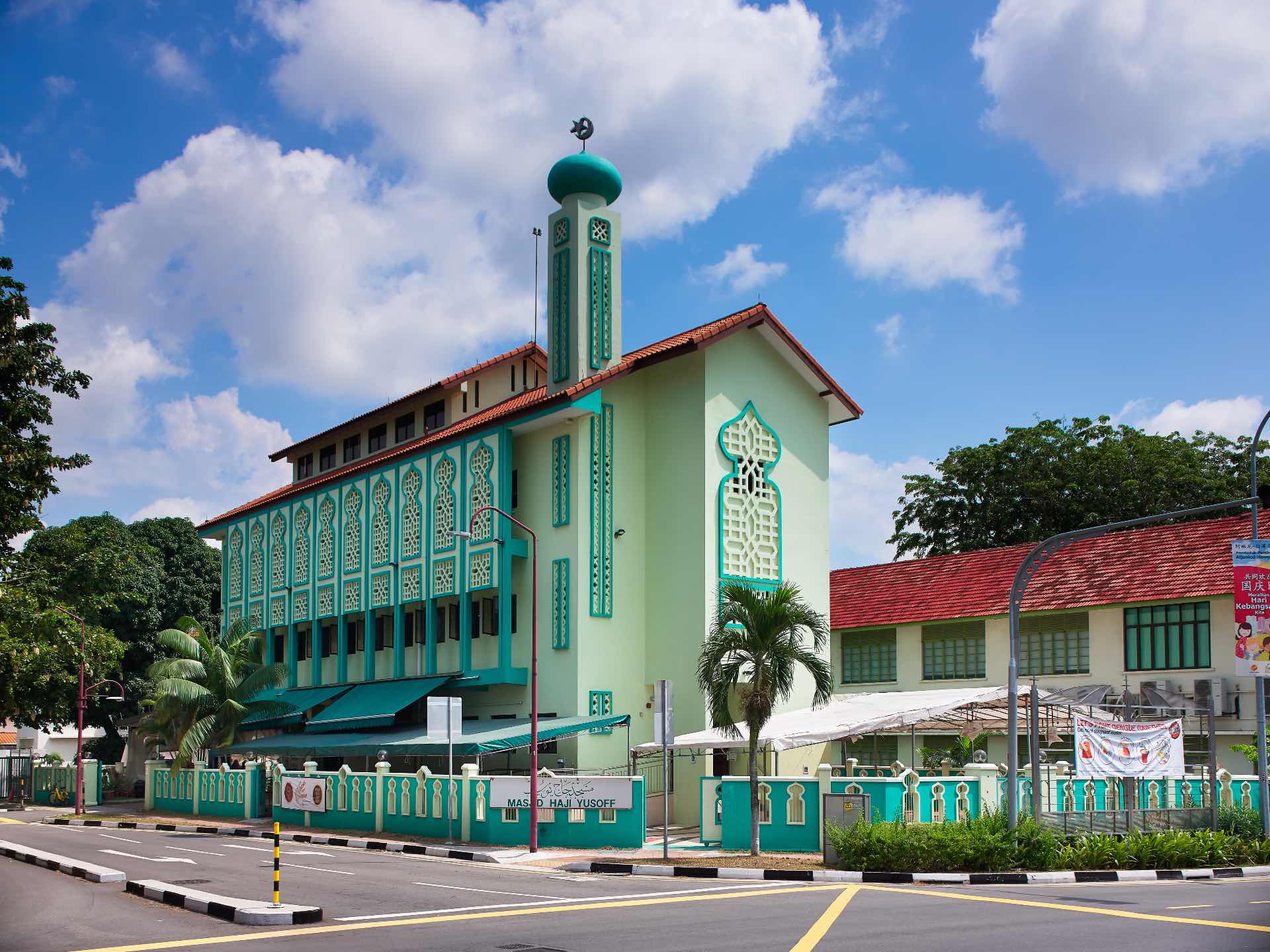
Masjid Haji Yusoff
The oldest mosque in Hougang was built in 1921. It is also fondly known as Sembahyang Tng (combining the Malay world for prayer and Hokkien word for pavilion) by Chinese residents here.
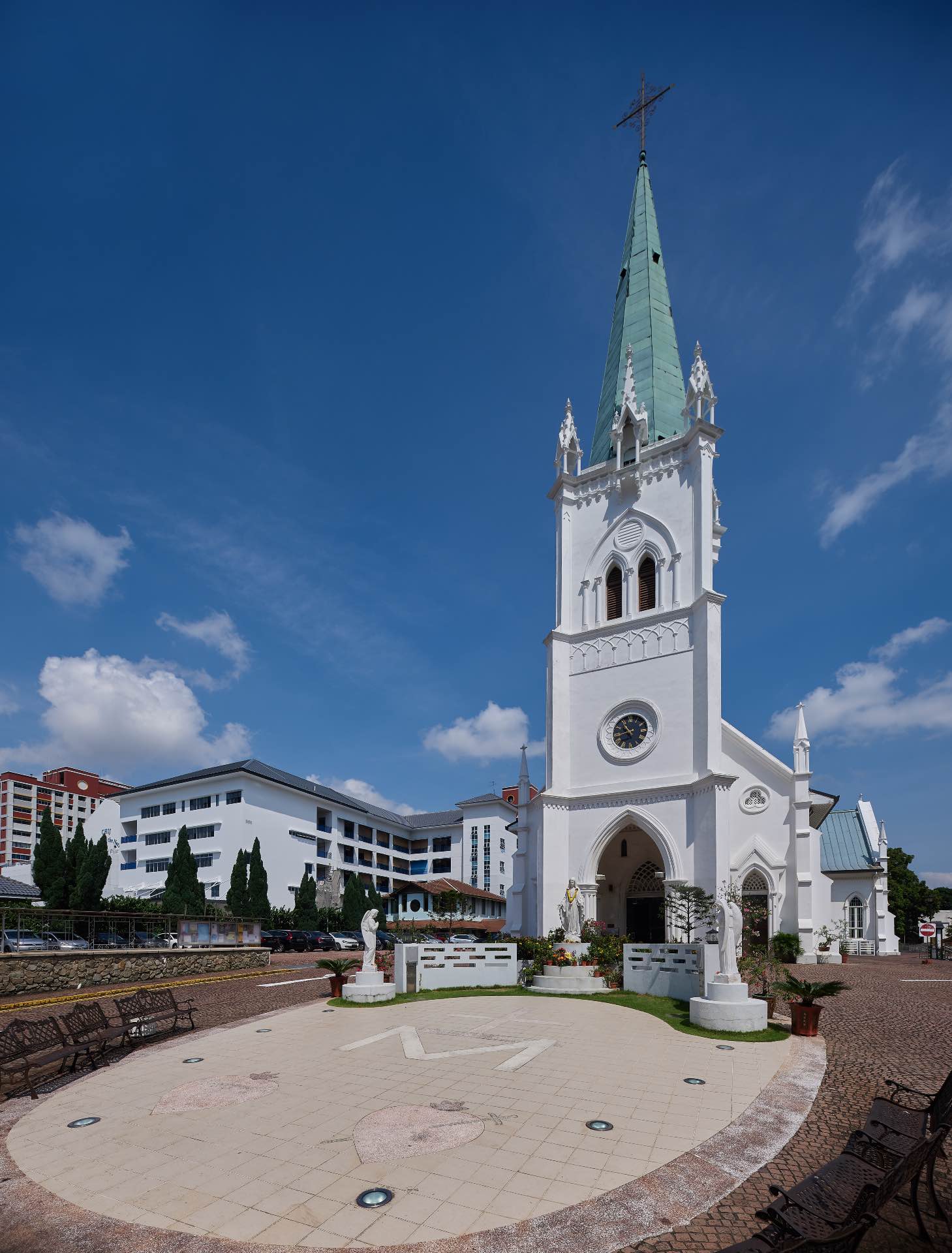
Church of the Nativity of the Blessed Virgin Mary
Yes, there are gothic-style churches right here in Singapore. This one at the junction of Hougang Ave 8 and Upp Serangoon Road (and opposite Punggol Park) was constructed in 1901 - mass is still held here to this day, even in Teochew. The church was gazetted as a National Monument in 2005.
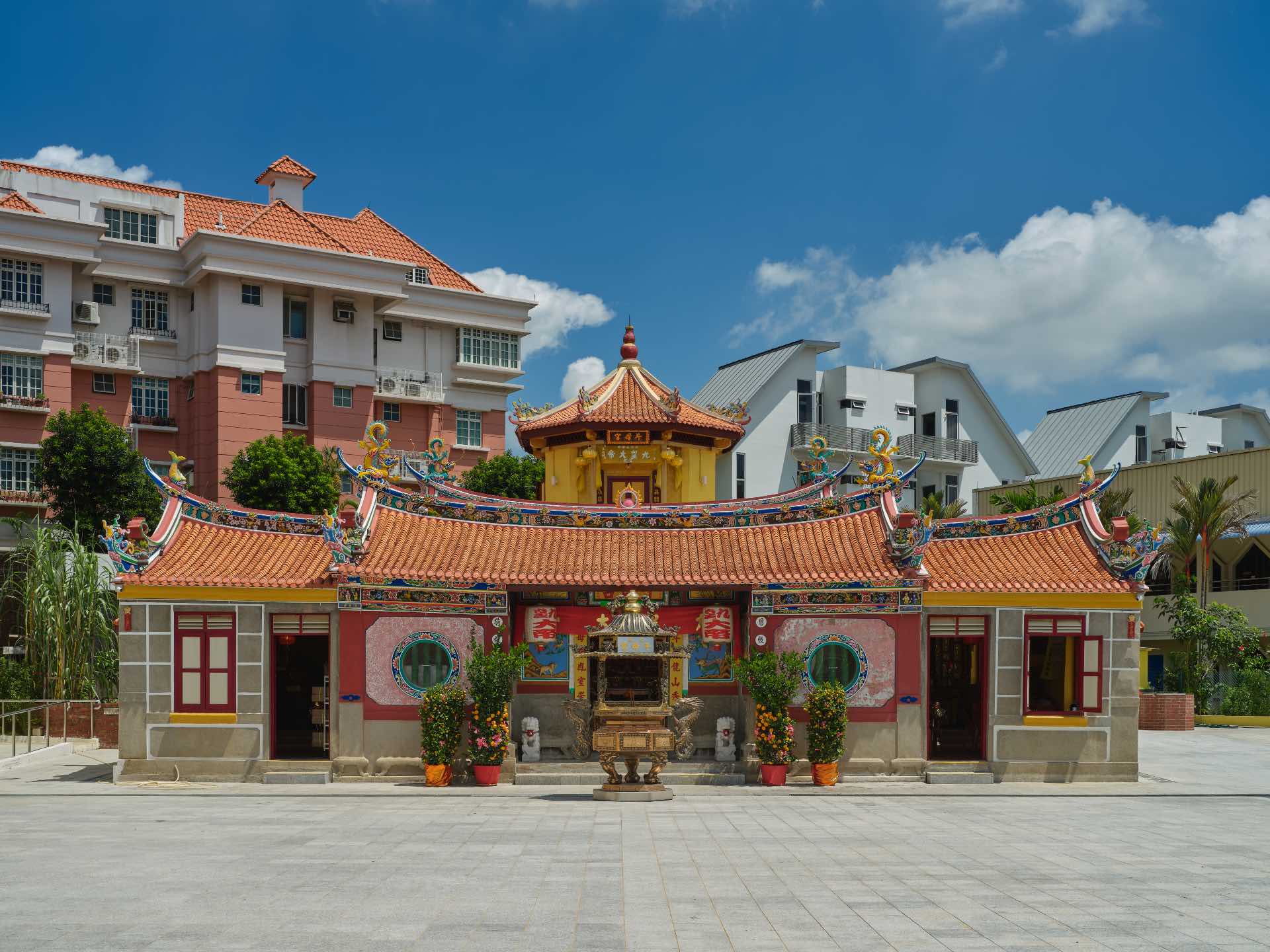
Hougang Tou Mu Kung
This distinctive structure is the oldest temple in the country dedicated to the Nine Emperor Gods. Completed in 1921, the temple was gazetted as a National Monument in 2005. If you drop by during the Nine Emperor Gods festival, which begins on the last day of the 8th lunar month (4 October 2021), you'll catch a procession that starts here and goes all the way to Sungei Serangoon to invite the deities, who have descended from the heavens, into the temple.
Happening history sia
Explore the rich history of Hougang and witness how it's transformed into the suburb it is today by following NHB’s Hougang Heritage Trail. Here are three suggested routes:
- Landmarks of Hougang, 1 hour with public transport
- Architectural Gems, 1 hour 45 min with public transport
- Institutions of Service, 1 hour 30 min with public transport
For the latest updates on Wonderwall.sg, be sure to follow us on TikTok, Telegram, Instagram, and Facebook. If you have a story idea for us, email us at [email protected].







